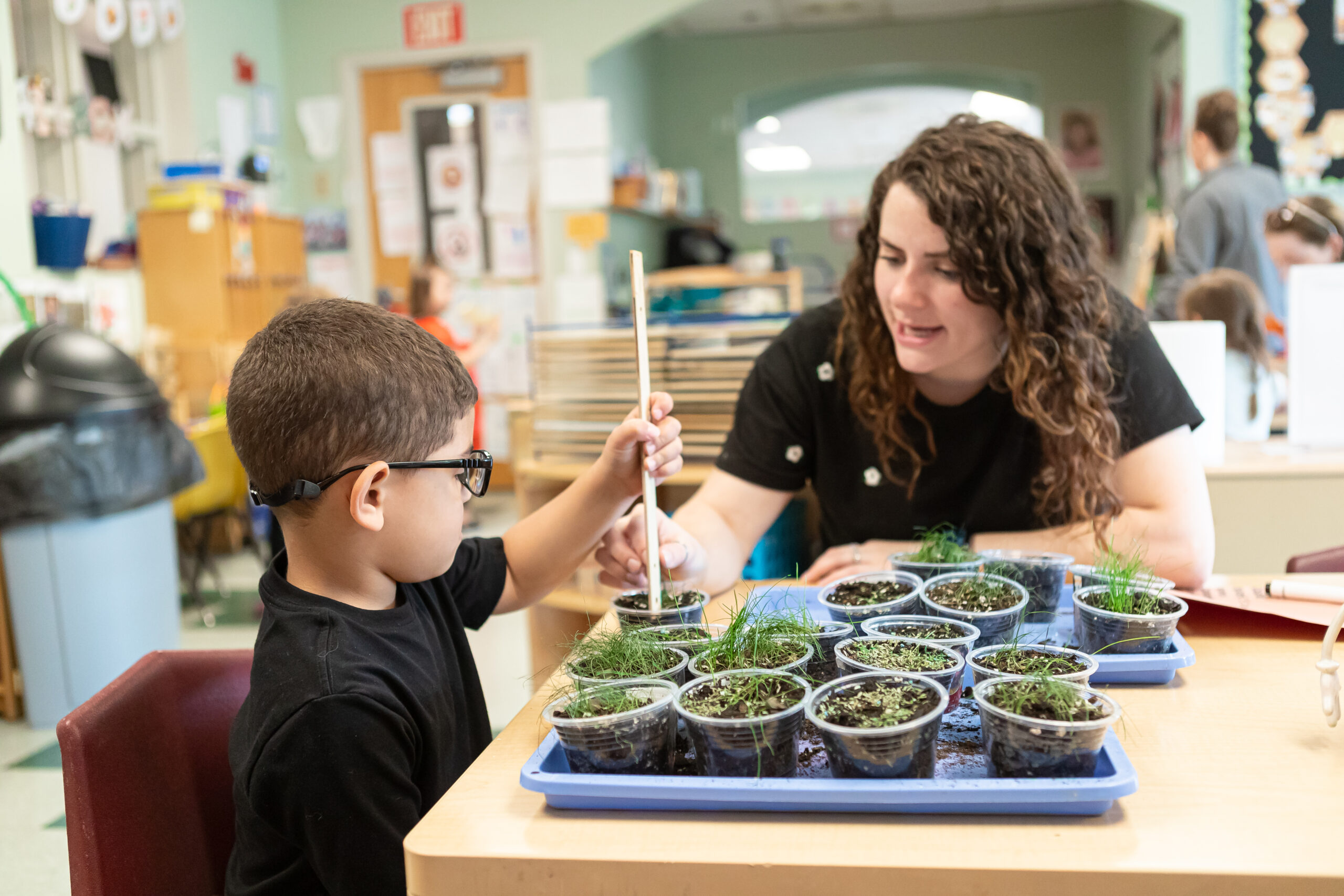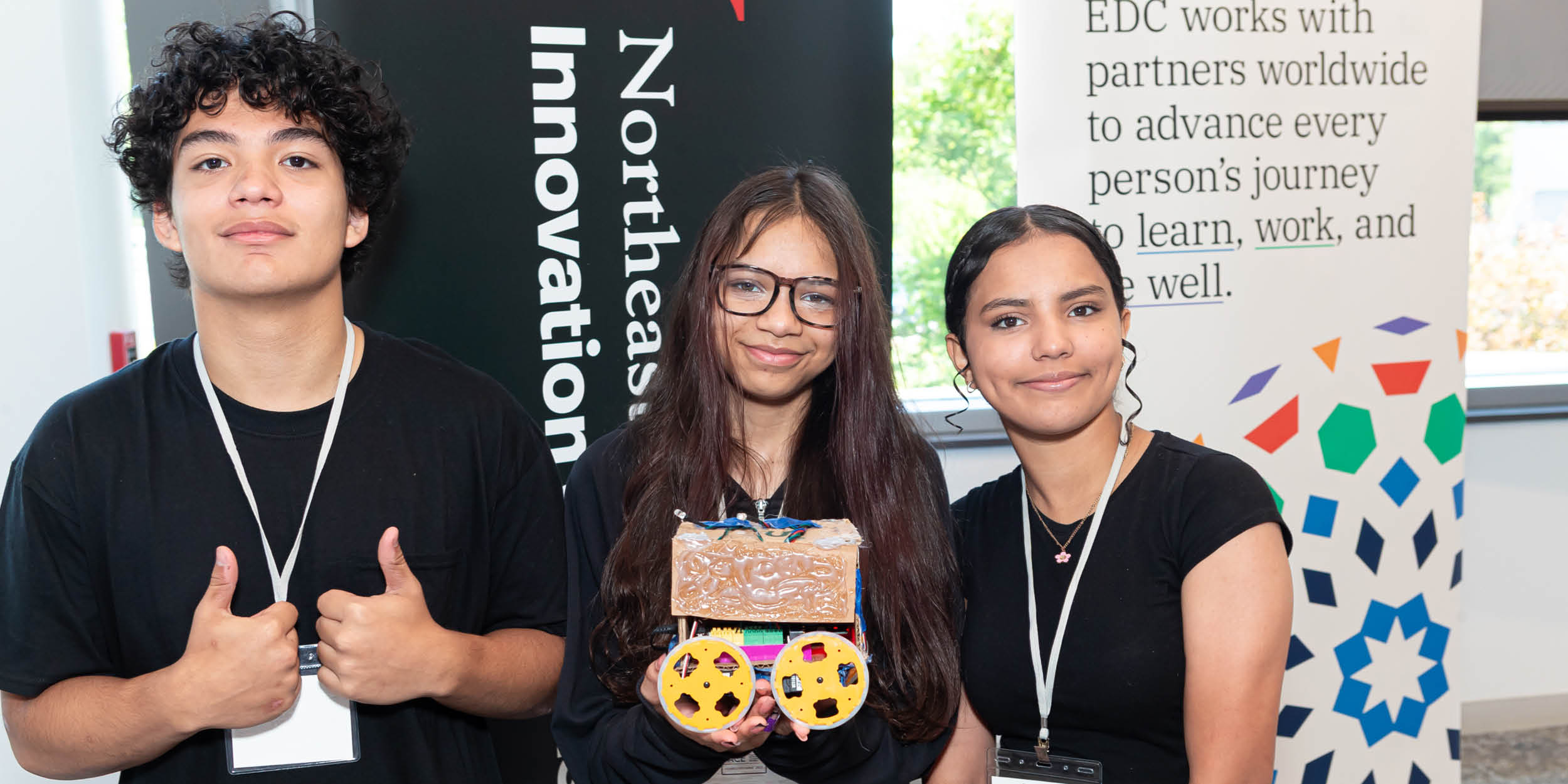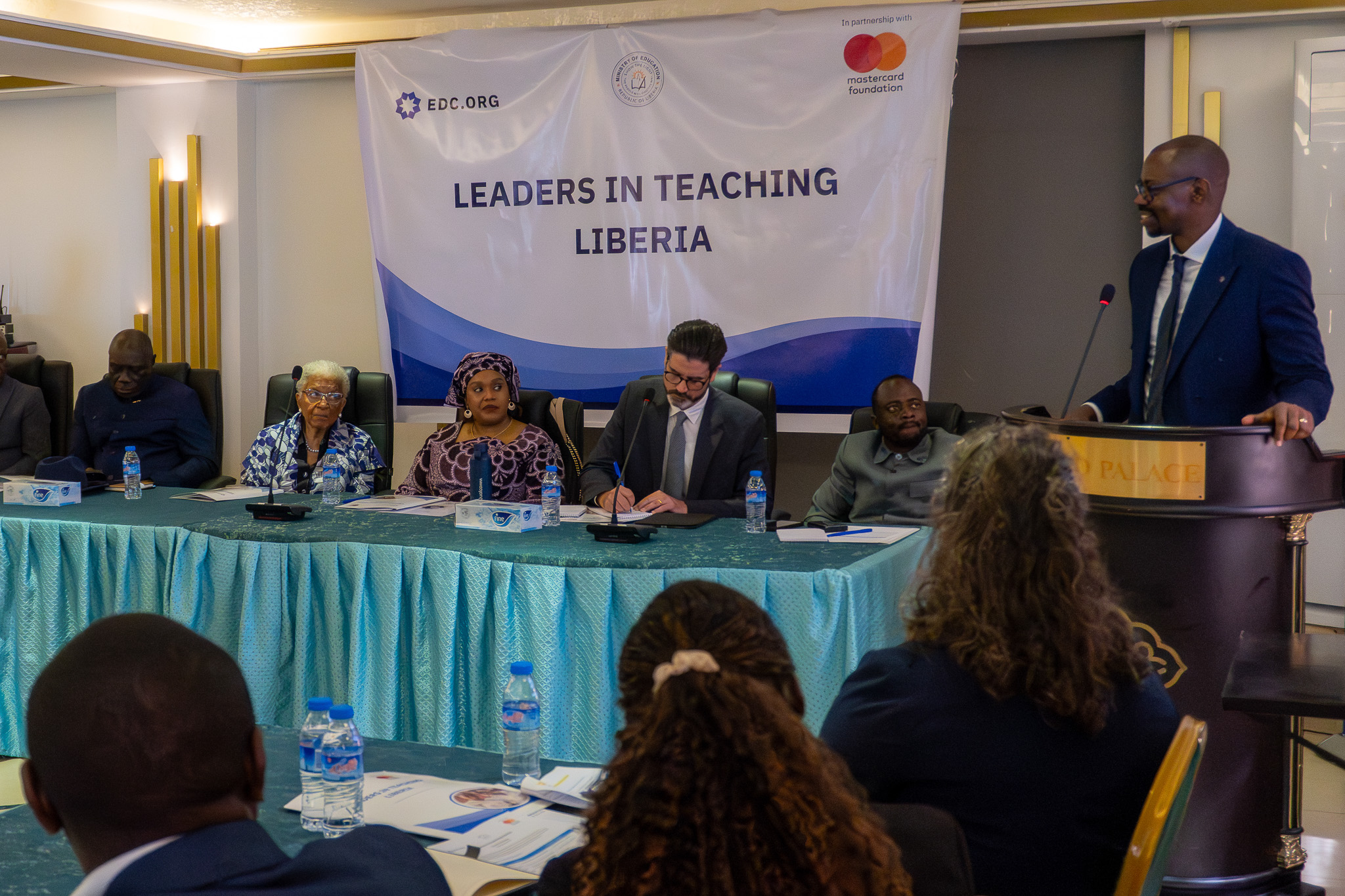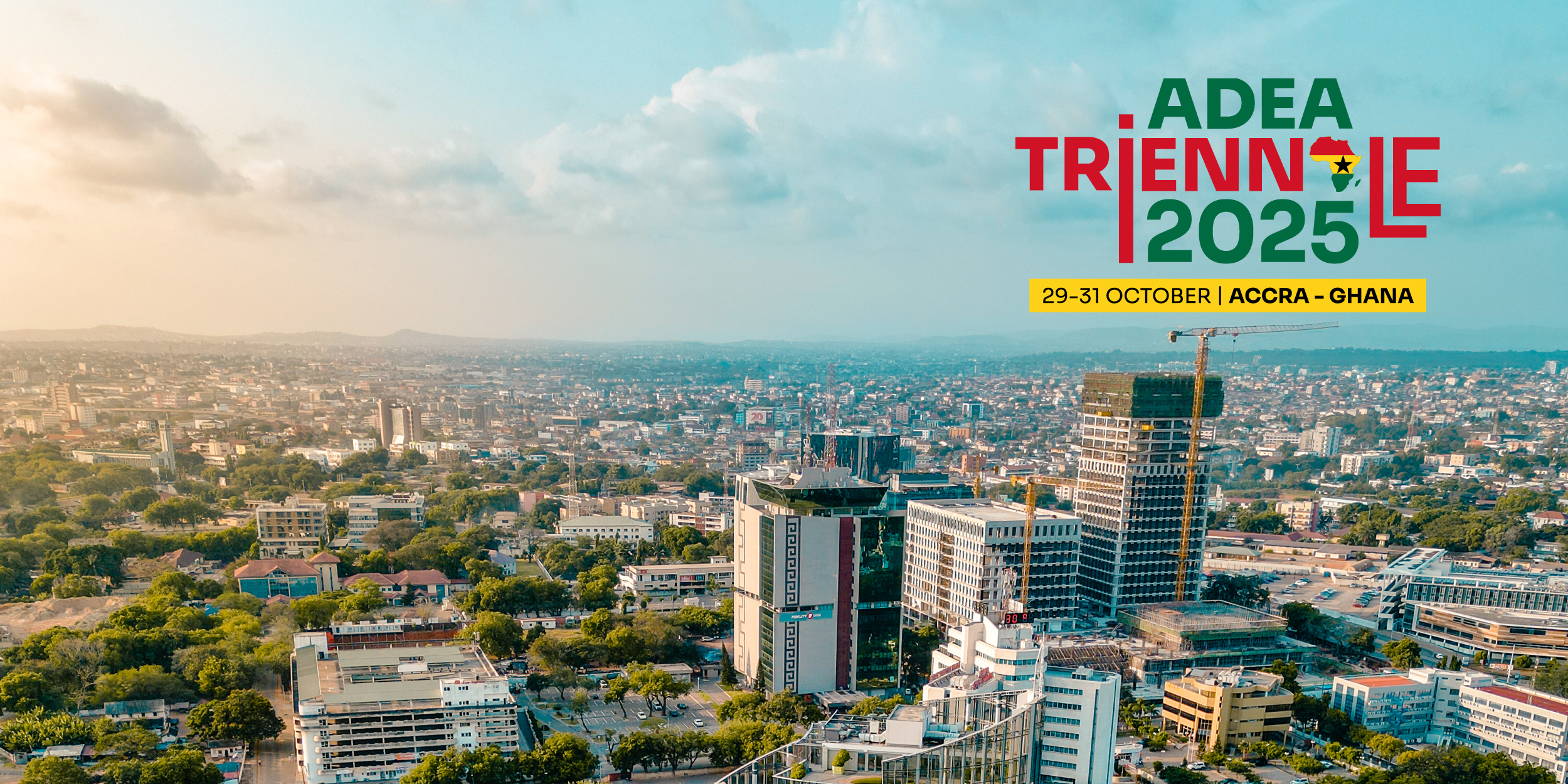Elementary & Secondary Education
EDC designs and tests innovative learning experiences that transform traditional teaching methods, foster deep understanding, promote proficiency, and help students think critically.
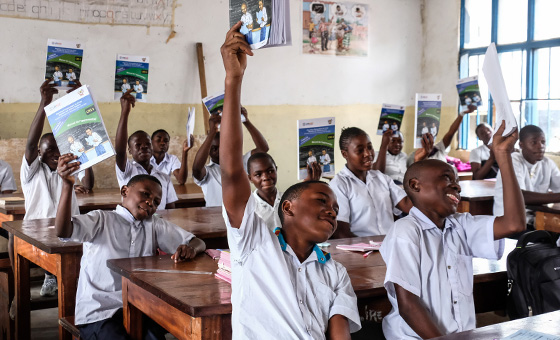
We equip children and young adults with the fundamentals for success—in school and in life—through engaging, research-based curricula, digital tools, and comprehensive teacher training. Our work spans a range of educational contexts, from traditional classrooms to remote and crisis-affected settings. Through our collaborations with local and international organizations, we aim to expand quality education, particularly in regions impacted by poverty, conflict, or instability.
Beyond curriculum development, we study the effectiveness of interventions and innovations and we offer professional development programs that build the capacity of teachers and leaders to provide high-quality instruction. EDC’s initiatives focus on addressing key educational challenges such as strengthening literacy and numeracy outcomes, enhancing STEM education, and improving educational opportunities for all learners.
Key initiatives such as Math For All, A World In Motion, Amgen Biotech Experience, Supporting Readiness through Vital Civic Empowerment, Rwanda Akazi Kanoze 2, the Mali Road to Reading Program, and the Global Book Alliance in Action are scaling and studying innovative solutions that improve educational outcomes and career readiness for millions of learners.
Our Work
Featured Project
Center for Advancing Elementary Science through Assessment, Research, and Technology
In CAESART, EDC is bringing together researchers, educators, and policymakers to generate innovative ways to understand and improve young students’ science learning.
Read more
